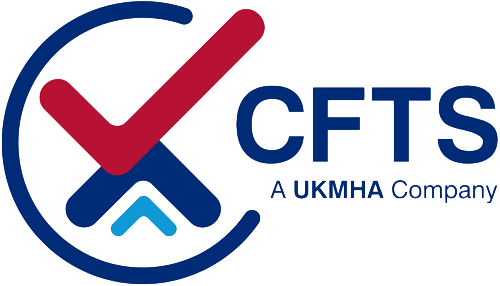LOLER vs PUWER – why both are essential
26 June 2025
It might seem obvious that a Thorough Examination should check both lifting and driving parts to confirm the truck is safe. But worryingly, some providers might not inspect your truck that way.
This often happens because forklift checks are split between two sets of rules: LOLER and PUWER.
LOLER checks and Thorough Examination
The confusion comes from the formal legal requirement for Thorough Examinations being set out in the Lifting Operations and Lifting Equipment Regulations 1998, commonly known as LOLER. That’s why you’ll often hear your forklift’s Thorough Examination described as a “LOLER test” or “LOLER check”.
The rules say employers must have lifting equipment thoroughly examined if wear or damage could make it dangerous. That includes forklifts, but because the rules focus on lifting equipment, many providers only test the lifting parts.
This is a huge problem. A forklift is not just lifting equipment — it’s also a vehicle. It has brakes, tyres, steering, safety systems, transmission… all things that could cause serious safety issues if they go wrong.
If you choose a provider who believes a LOLER check applies to the lifting parts only, you don’t really know if your truck is safe to use. And that could mean you’re breaching PUWER.
But a forklift is more than just lifting equipment — it’s also a vehicle. It has brakes, tyres, steering, and other safety-critical parts. And those aren’t covered by LOLER.
That’s where PUWER comes in.
Why PUWER matters in a LOLER Thorough Examination
Under the Provision and Use of Work Equipment Regulations 1998 — known as PUWER — employers must regularly inspect equipment and ensure it remains safe. So, if your “LOLER test” only covers the lifting parts, you’re in trouble.
For a forklift, PUWER means you need to check all the safety-critical components, including brakes, tyres, and steering — but also counterweight, chassis, transmission, overhead guard, and more.
Because PUWER is less well known, many managers mistakenly assume that a LOLER check covers the whole truck — including all those vital safety systems.
It’s an easy mistake to make. After all, when people hear “Thorough Examination,” they expect something comprehensive.
A true Thorough Examination covers LOLER and PUWER together
When we first explain what a Thorough Examination is, an MOT is often the go-to comparison. You wouldn’t drive away from an MOT without knowing your brakes, tyres, and steering had been checked. So why settle for a Thorough Examination that doesn’t check those parts, just because they fall under PUWER?
The answer, of course, is to check LOLER and PUWER aspects together in a single, truly thorough Thorough Examination. It’s the clearest, most efficient way to ensure both LOLER and PUWER are covered. Without that, there’s no guarantee your equipment is safe — or legal — to use.
Thankfully, since 2004, CFTS has set the industry’s standard for Thorough Examinations. This covers equipment like counterbalance forklifts, rough-terrain vehicles, telehandlers, tractors, reach trucks, and more.
By working with a CFTS-accredited provider, you get complete assurance that your truck has been fully inspected, in line with a clear procedural code. It’s not only legally compliant, but also safe and able to operate at its maximum capacity.
What needs checking – and how often
Not sure what counts as LOLER or PUWER? Use our interactive guides to see which parts are covered by each regulation. These will give you an exact idea of what you risk leaving exposed by not fulfilling obligations under LOLER and PUWER together.
We also have an interactive calculator to tell you how often your inspection is due. Unlike an MOT, LOLER inspection intervals can vary. Equipment for lifting people (for instance, order pickers) must be checked every 6 months, while other lifting equipment may only need an annual check. But even this depends on factors like workload and operating conditions.
There are also exceptional circumstances such as after an accident or long periods of disuse, when an extra check is needed.
If you have any questions, use our postcode tool to contact your local CFTS member. We have more than 800 accredited members around the UK and Ireland, so help is never far away.
